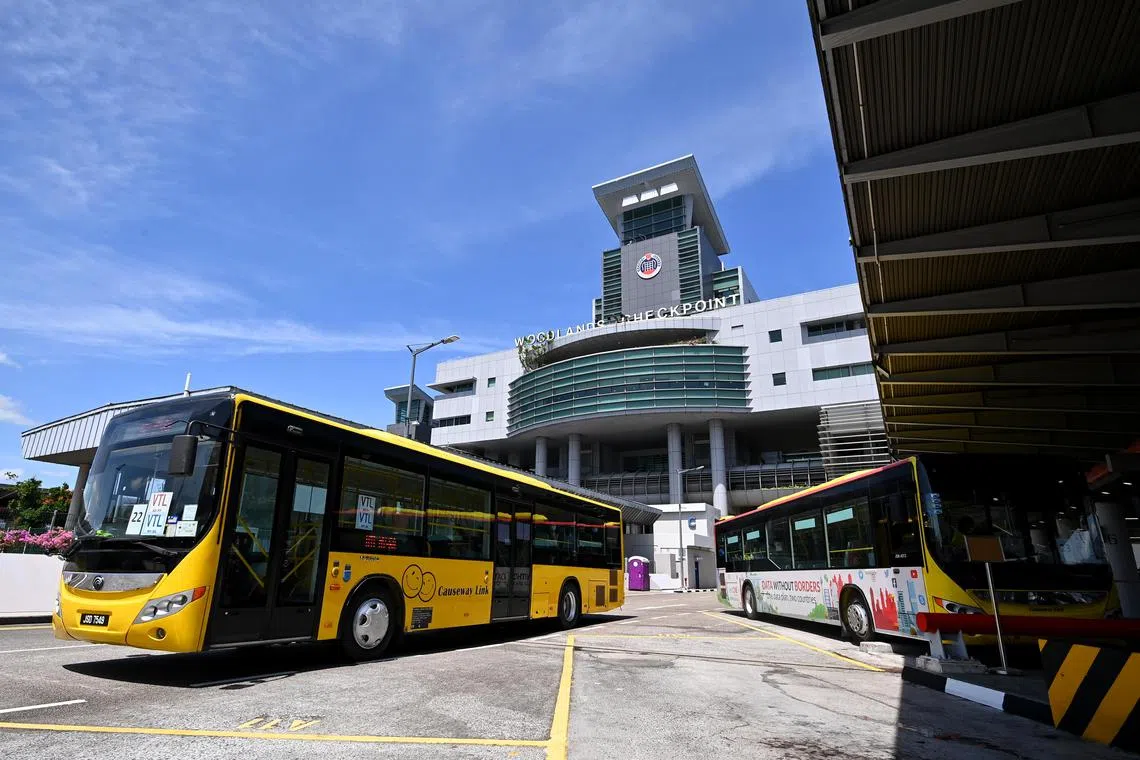Travel in Malaysia set to be pricier as bus services stop getting diesel subsidies
Sign up now: Get insights on the biggest stories in Malaysia

Malaysian express and tour bus services stopped receiving diesel subsidies from June 10.
ST PHOTO: LIM YAOHUI
PETALING JAYA - Travelling in Malaysia is set to cost more as express and tour bus services have stopped receiving diesel subsidies from June 10.
Industry players said prices could rise between 15 per cent and 30 per cent due to the sudden implementation of rationalised diesel subsidies.
Peninsular Tour Bus Operators Association president Steven Chong said operation costs would increase up to 30 per cent, adding that the rationalisation disrupted services provided by about 150 association members, whose customers are mainly foreign tourists.
“On top of the floating diesel rate, we need to pay all sorts of expenses like bus maintenance, bills, salaries and spare parts, and now we have to pay a service tax of 8 per cent.
“Operators can’t afford to absorb the prices,” he said.
Mr Chong said operators feared losing customers, who are mainly from overseas tour agencies, as their packages were quoted based on the subsidised diesel rate of RM2.15 ($0.62) per litre.
“With this new rate, it will surely be more expensive and we are afraid the agents will not take up our offers,” he said.
He said a memorandum on the matter was submitted to the Tourism, Arts and Culture Minister on June 11.
According to the memorandum seen by The Star, the association received “thousands of phone calls” from tour bus operators following the implementation of the new floating diesel rate at RM3.35 per litre.
It said operators had to absorb extra costs as the tourists were already inbound and the original price quotations could not be retracted.
Pan Malaysian Bus Operators Association president Mohamad Ashfar Ali said there was a monthly volume quota limit for express buses to fuel up at the subsidised diesel rate.
Once the quota passes, however, they would have to purchase diesel at floated prices.
“The quota for express buses was set at 2,880 litres per month, which would only be enough for about 15 days,” he said, adding that only a few operators had their quota limit increase approved.
Express buses are categorised into two main fare classes – economy and executive.
While executive coaches have the freedom to raise fares, a ceiling on the economy class fare has been in place since 2008.
“Bus operators are only allowed to operate 30 per cent of their fleet with executive coaches, while the remaining ones must be economy,” said Mr Ashfar.
Malaysian Tourism Federation president Tan Kok Liang expects a 27 per cent hike in the cost of tourism services in the peninsula.
He said tour operators would honour rates provided in previously signed commitments.
“We need to honour the commitments made but it will see us losing money,” he said.
He urged the government to set aside a 12-month grace period for the tourism industry, allowing them ample time to adjust rates.
Malaysian Association of Tour and Travel Agents president Nigel Wong said rate adjustments between 15 per cent and 20 per cent could be expected.
He said the rate increase varied according to the type of vehicles used, routes and distance covered.
Mr Wong appealed for diesel-powered vehicles in the tourism sector to be included in the list of vehicles exempted through the Subsidised Diesel Control System.
“Some breathing space will definitely help,” he said, adding that they had requested a meeting with the Domestic Trade and Cost of Living Ministry to discuss the situation. THE STAR/ASIA NEWS NETWORK


